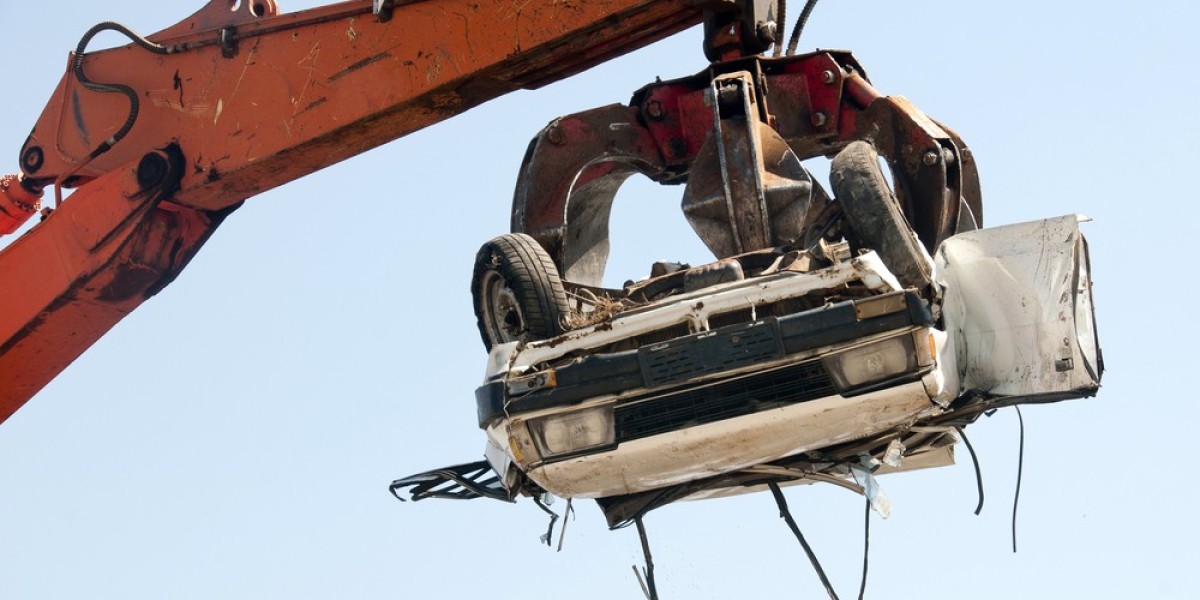For more than a century, the auto recycling industry has revolved around traditional cars like diesel and petrol vehicles that eventually wear out, break down, and end up at scrap yards. The process of dealing with these cars is fairly well established, parts are metals are recycled, salvaged, and the rest is disposed of. But the auto industry is rapidly evolving, and a new challenge is arriving on the horizon: end of life hydrogen vehicles.
Hydrogen cars, powered by fuel cells instead of combustion engines are usually praised as the next frontier in clean transport. They emit only water vapor, use lightweight materials, and promise a greener future. But like every other car, they too will eventually reach the end of their lifespan. And when that happens, the recycling process will be much more complicated than with a regular vehicle.
So, what makes hydrogen vehicles such a big recycling challenge? Let’s dive in.
Hydrogen Cars: A New Breed of End of Life Vehicle
Unlike petrol vehicles, hydrogen cars don’t have engines filled with spark plugs, oil, or gearboxes in the traditional sense. Instead, they run on fuel cells that convert hydrogen gas into electricity, which powers the motor. This advanced technology reduces pollution on the road but poses serious questions for recyclers when the vehicle becomes an end of life vehicle.
Fuel cells are made of complex materials, including platinum and rare earth elements which are valuable but difficult to recover. The tanks that store hydrogen are designed to withstand extreme pressure, making them incredibly safe during use but very hard to dismantle when the car is no longer in service.
This means the traditional scrap car removal process will have to be reimagined to handle these new materials safely.
Why Hydrogen Cars Are Hard to Recycle
There are several reasons hydrogen cars pose new challenges for recycling:
High-Pressure Tanks
The hydrogen storage tanks are built to handle up to 70 0 bar of pressure. Cutting or dismantling them without proper safety protocols could be dangerous. Recyclers will need new equipment and training to safely process these tanks.
Complex Electronic Systems
Like electric cars, Hydrogen vehicles are filled with electronics, sensors, and battery like systems that add another layer of complexity for recyclers.
Fuel Cells with Rare Materials
Fuel cells usually have expensive and scarce elements like platinum. Extracting them is possible but requires specialised recycling facilities. Without these, valuable materials may go to waste.
Opportunities in Scrap Car Removal
While the challenges are clear, scrap car removal companies in Sydney and beyond see an opportunity here. Just as the industry adapted to hybrids and EVs, hydrogen cars will push recyclers to innovate again.
Companies that specialize in cash for cars Sydney services may soon find themselves dealing with hydrogen vehicles that owners want to get rid of. As the number of these cars grows, offering safe and reliable removal services will be critical.
Imagine this scenario: a hydrogen car owner in Sydney no longer wants to maintain an outdated model. Instead of worrying about where it will go, they call a scrap car removal service. The company collects it, ensures the fuel cell and tank are handled properly, and then resells or recycles the usable materials. This not only helps the car owner but also supports the circular economy by recovering rare metals and reducing waste.
Environmental Benefits of Proper Recycling
Recycling hydrogen cars correctly is more than just a technical challenge, it’s also a huge environmental opportunity.
Conserving Rare Materials: Platinum and rare earth metals can be reused in new fuel cells, reducing the need for mining.
Reducing Waste: Proper processing ensures dangerous materials are handled safely, keeping them out of landfills.
Supporting Clean Transport: A robust recycling system makes hydrogen cars more sustainable overall, encouraging more people to adopt them.
In this way, end-of-life vehicle recycling becomes a key part of building a cleaner future.
Preparing for the Future
Hydrogen cars are still relatively rare in Australia today compared to traditional vehicles, but that won’t be the case forever. Governments around the world are investing in hydrogen infrastructure, and manufacturers are pushing forward with new models.
By the time today’s hydrogen cars reach their end of life, we need to have the recycling systems in place to handle them. This means:
Investing in specialized recycling facilities.
Training workers in handling high-pressure tanks and fuel cells.
Building partnerships between automakers and recycling companies to ensure materials are recovered efficiently.
Conclusion
The rise of hydrogen cars represents an exciting shift toward cleaner transport, but it also creates a new recycling challenge we cannot ignore. As these vehicles eventually become end-of-life vehicles, the industry must adapt to safely and effectively recycle their unique components.
For Sydney residents, services like cash for cars Sydney and scrap car removal will play an important role in this transition. By embracing innovation, recyclers can turn what looks like a problem into an opportunity, recovering valuable resources, protecting the environment, and keeping pace with the future of mobility.
Hydrogen cars may be green on the road, but ensuring they remain green at the scrapyard will be the next big test for auto recycling.








